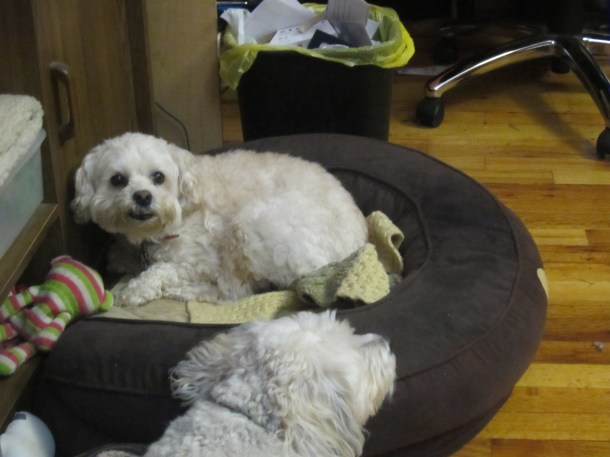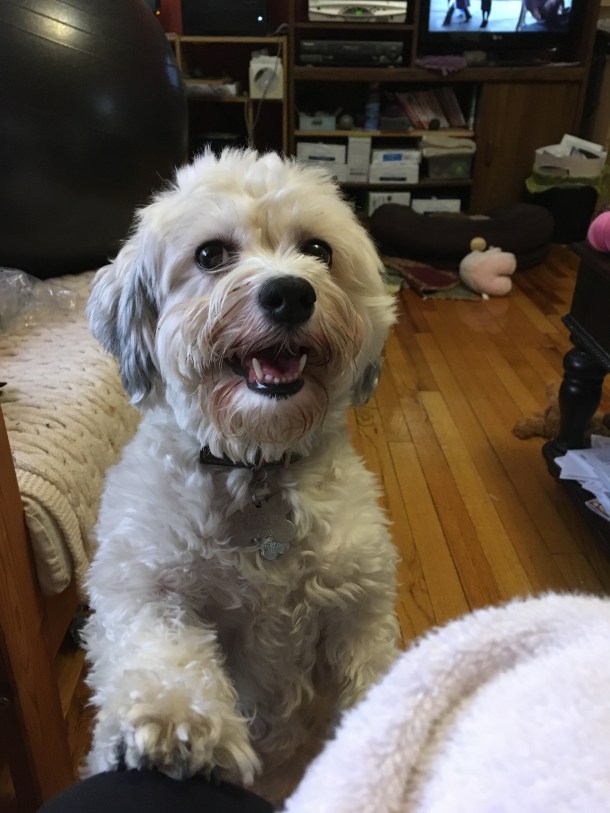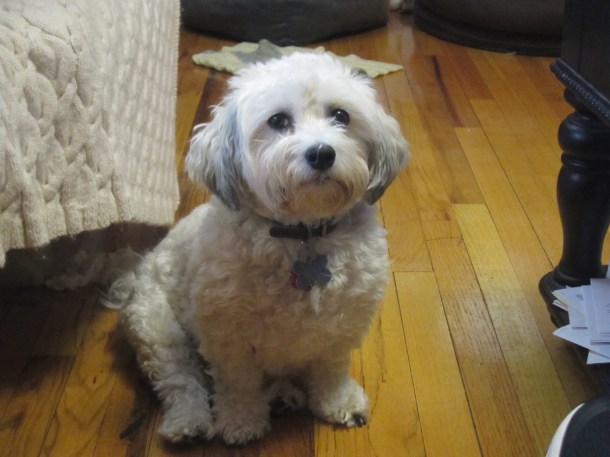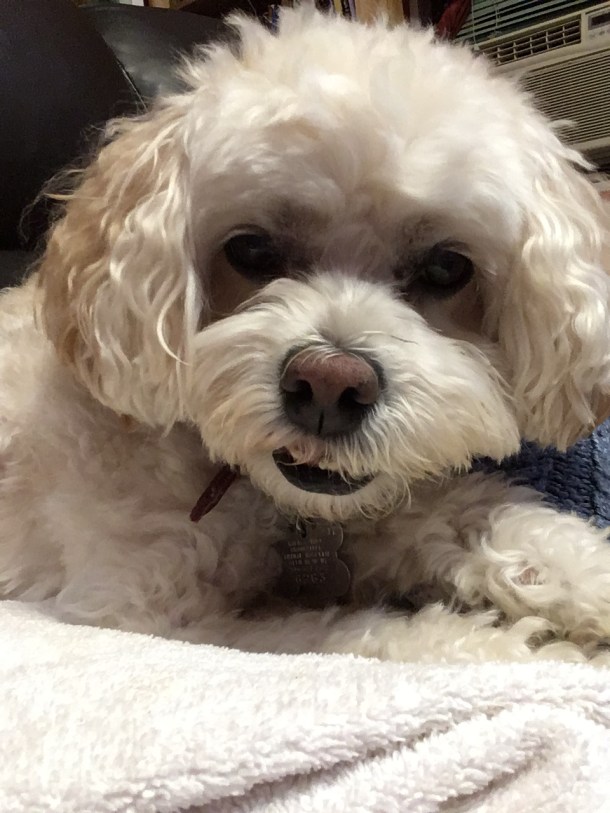There are no bombs falling, no explosions or fireworks. The world looks pretty nice, actually, and everyone I can see looks healthy, even with the face masks. There are no workers in Tyvek suits walking the streets spraying for errant Coronavirus droplets. At least, not yet. So, while doing the right thing, and staying home, I feel a bit silly. It’s hard to trust the experts on television instead of what I see with my own eyes. The President clearly struggles with this, too, but those images from Italy and Spain are hard to ignore (the horror stories on Facebook, about monkeys in Thailand starving for the bananas they used to get from tourists, and pets in China dying while their people went into quarantine, and dogs being euthanized because people believe – incorrectly! – that pets can spread the disease, are too much for me to take in).

“People suck.”
I’m also feeling guilty because my life has not been disrupted as much as the lives of other people. And I feel guilty for being so comfortable with this social distancing thing, and I worry that I will revert to my old levels of isolation and not be able to get back out of it once the threat of infection is over.
Mom was getting cabin fever every day for the first week of the shut down, and looking for any excuse to go out and do “essential” errands, but by the second week she started to settle in and feel the pressure to stay home (from me, mostly). Now, she’s focusing her excess energy on gardening, and sewing, and sitting in on Zoom sessions at Noon each day with the clergy from our synagogue. Her biggest source of anxiety is my brother, who is an emergency room doctor. He’s been downplaying the risks he’s under, but at least he’s been in touch and letting Mom know that he’s still okay.
The more pressing contagion, for me, is being created on social media. There’s this idea that we should be making the most of our time at home, by writing novels, and learning ten languages, and reading hundreds of books, and virtually visiting all of the museums in the world. I don’t know how parents are managing the pressure to homeschool their kids, with every kind of free and not-free educational resource being advertised everywhere, with the implication that if their kids don’t do three years’ worth of school over the next three weeks they will fail life forever. Earn a Ph.D.! Build a robot! Learn how to make a Coronavirus vaccine in your own basement!

“I won’t be doing that, Mommy.”
I think people might be overestimating how productive this time at home can be.
The instinct for community seems to be strengthening though, even at my synagogue, where we are all about community building, all the time. This crisis has brought out even more awareness that we need each other; that we need to see each other. And it’s so important to us that we’re all learning how to manage Zoom – though a lot of the seniors forget to mute themselves, so while we’re trying to listen to the rabbi’s lesson on census taking leading to plagues in the ancient world, we’re listening to couples arguing about toast, or answering their phones. Sometimes I’m not sure they know they’re on screen, let alone audible.
Ellie and Cricket have been able to go to all kinds of synagogue services and committee meetings and Judaic classes now that synagogue is online, but they’re not sure what to make of it. Zoom, especially, seems to unnerve them.

“I am never unnerved. I am completely nerved.”
We’re posting our synagogue school lessons on the website instead of doing Zoom conferences with the kids, though the idea of being able to mute my students at will is certainly tempting. I didn’t realize how much I missed my students until a parent sent me a picture of her daughter holding up her class assignment. The sudden thought that I may not get a chance to see them again this year almost broke me.
Another issue during the shutdown has been the disorientation. Reality keeps changing every five minutes, after a phone call or a press conference, and I can’t process it fast enough. All I can do is eat my popcorn (I’m on a new version of Weight Watchers that allows unlimited air-popped popcorn) and watch the news. I’ve been listening to a lot of music too (Yo-Yo Ma is an incredible comfort).
The supermarket has been the most obvious sign of the apocalypse, with empty shelves where eggs and yogurt and chicken and pasta and frozen vegetables used to be. When did Almond milk become such a popular commodity? And frozen spinach? And oatmeal? The toilet paper thing has been disconcerting to everyone. I thought it was just a Facebook joke until I went to my local supermarket for my first Coronavirus-shutdown-shopping trip and saw the empty shelves between the tissues and the paper towels for myself. People are weird.

There’s some relief to being in a shutdown, as opposed to the state of confusion we were in for the weeks leading up to it, when we were getting mixed messages from the President and the doctors and the news and social media; the constantly changing research about who would be impacted, and which measures could work to slow it down, didn’t help either. It’s a relief to at least know what’s expected of me now, though I still worry that people are looking at me funny when I go to the supermarket without a face mask (where are people getting all of these face masks?!).
Most of the time I feel okay, and prepared, but then someone will say something that makes me worry that I’m not thinking far enough ahead, and the worst is yet to come, and people I know will die, and food will run out, and the financial hardships will last for years in the aftermath of all of this. People are really good at creating disaster scenarios that I’d never have thought of on my own.

I’m worried for my brother and his kids. I’m worried for the elderly people in my life who are so vulnerable and so important to me. I’m worried about the impact the stockmarket will have on Mom’s retirement fund (an important source of income for our household). And I’m worried for myself, which seems selfish and petty when other people are in so much more danger. And I feel guilty, all the time, for all of my good fortune, and so terrified that it will go away.
I’m still angry that we didn’t get out ahead of this in January, when news from Wuhan, China was so devastating. And I’m angry that we didn’t have testing in place when other countries did, which meant that the virus was able to spread undetected for weeks, or months. I want to feel peaceful and Zen and accepting of my fate, and sometimes I do, but sometimes I really don’t. And it sucks.
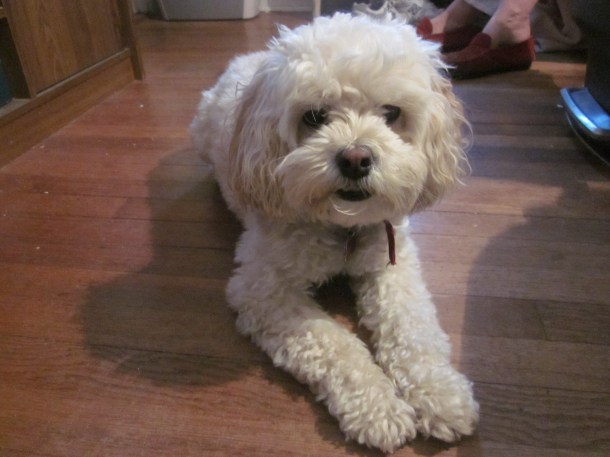
Acceptance is a myth, Mommy.”
My rabbi, who is hyper-rational and proud of it, was brought to tears seeing all of us on Zoom for his class about the concept of the Death of God after the Holocaust, because he does believe, as I do, in the I and Thou of God, the extraordinary Godness of community and togetherness, and how sitting in our separate homes we are still able to come together and learn.
Here’s hoping that as time passes, and the virus passes, we can catch joy and meaning from each other as easily as we catch fear. Wouldn’t that be wonderful?!
Fingers crossed (from at least six feet away).
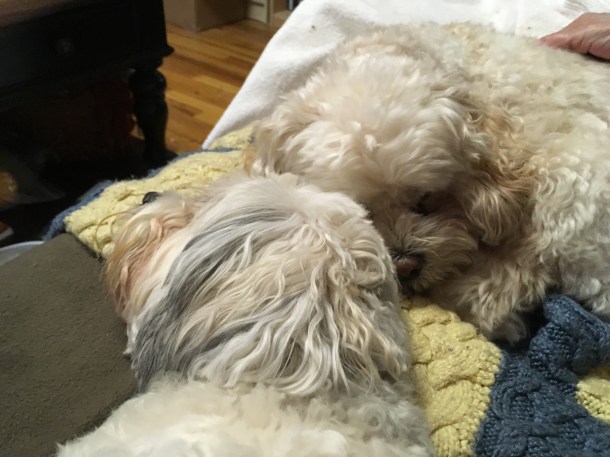
Or closer.
If you haven’t had a chance yet, please check out my Young Adult novel, Yeshiva Girl, on Amazon. And if you feel called to write a review of the book, on Amazon, or anywhere else, I’d be honored.
Yeshiva Girl is about a Jewish teenager on Long Island, named Isabel, though her father calls her Jezebel. Her father has been accused of inappropriate sexual behavior with one of his students, which he denies, but Izzy implicitly believes it’s true. As a result of his problems, her father sends her to a co-ed Orthodox yeshiva for tenth grade, out of the blue, and Izzy and her mother can’t figure out how to prevent it. At Yeshiva, though, Izzy finds that religious people are much more complicated than she had expected. Some, like her father, may use religion as a place to hide, but others search for and find comfort, and community, and even enlightenment. The question is, what will Izzy find?





